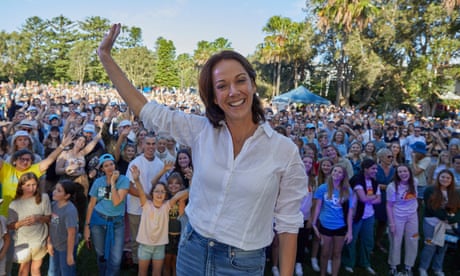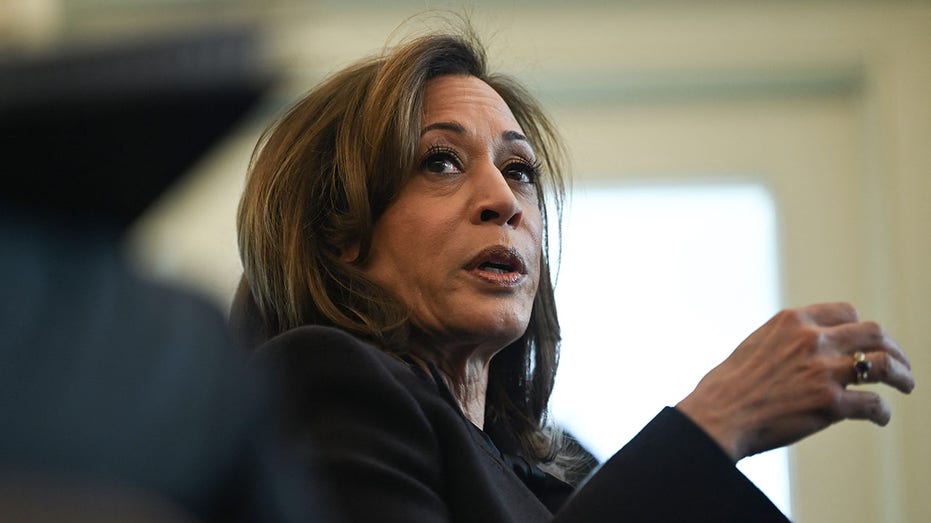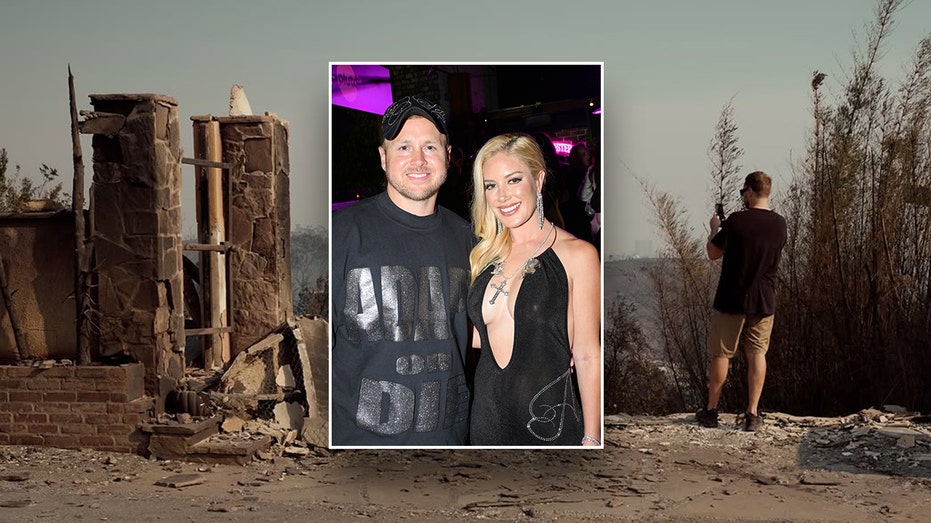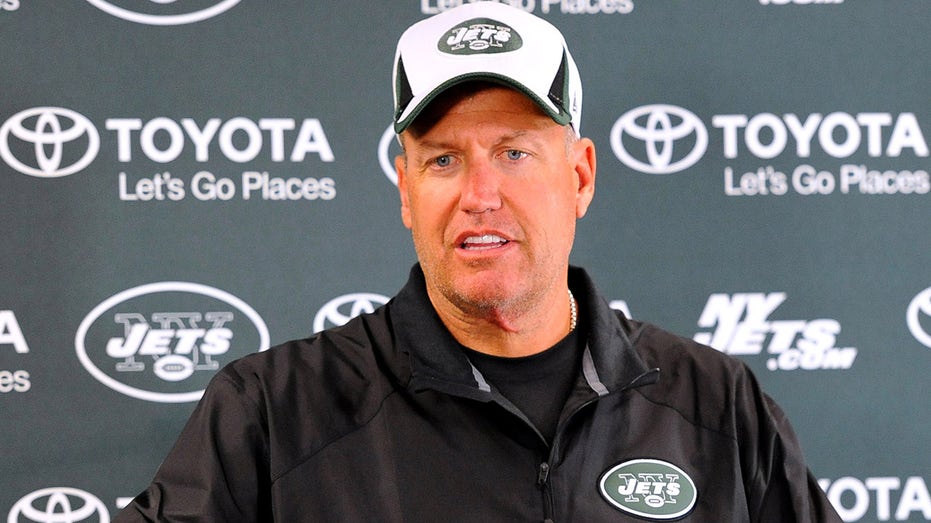- by foxnews
- 13 Jan 2025
Mackellar malaise: could an independent GP cause an upset in Liberals’ beachside bastion?
Mackellar malaise: could an independent GP cause an upset in Liberals’ beachside bastion?
- by theguardian
- 07 May 2022
- in news

Until now, the contest between Liberal MP Jason Falinski and former middle distance runner and local GP Dr Sophie Scamps for Sydney's northern beaches seat of Mackellar has been dismissed as a case study in optimism over hard facts.
The Liberals have held Mackellar for an unbroken 73 years. Falinski holds the seat with a whopping 13.3% two-party-preferred margin and in 2019 won 53% of the primary vote. He's personable, moderate, believes in climate change and knows his electorate.
But something seems to be happening in Mackellar that is turning it into a contest to watch.
Mackellar borders Warringah, the seat where independent Zali Steggall made history in 2019 by defeating former prime minister Tony Abbott.
Most have dismissed Scamps' chances because the contest lacked that emotional frisson that Abbott, a very public climate change sceptic, generated among moderate Liberal voters concerned about the climate crisis.
But Scamps has the current prime minister, Scott Morrison.
His attacks on the New South Wales Independent Commission Against Corruption coupled with a perception that the Liberals have taken Mackellar for granted (the flipside of pork-barrelling) have added the zing to her pitch about real climate action.
"I think I will probably go independent. She seems pretty capable," said Peter, who was waiting outside the pharmacy at Dee Why for his flu shot when approached by Guardian Australia.
"Plus neither of the majors have impressed me, particularly on climate change - it's the biggie," he added.
Another voter, Mark, who was outside the coffee shop at Narraweena, said it was the federal integrity commission "and the dishonesty of Scott Morrison" that had swayed him toward voting independent.
A UComms poll of 833 voters in the seat in early April by Climate 200 found Scamps had 23.9% of the primary vote, while Falinski's vote had been pared back to 35.2%. New polling done in the past week, after Scamps' campaign launch, is said to have showed her gaining ground (seat polling is generally considered less reliable than national polling though, because of the difficulty in getting a representative sample).
Over 1,500 people turned out for Scamps' launch at Avalon last weekend, drawn in part by performances by Aria-winning musicians - Angus and Julia Stone and Lime Cordiale - who are supporting Scamps' campaign.
In contrast, the Liberals have struggled to get more than a couple of hundred to campaign launches.
Recognition is essential for any politician but particularly for an independent. As a doctor in the community, Scamps has been capitalising on her role.
"Dr Sophie" corflutes in are highly visible around the northern parts of the electorate but have now spread further south.
So visible, in fact, that a dirty tricks campaign has begun in the last 24 hours with doctored posters appearing claiming she is running for the Greens.
Scamps and her friend Leonie Scarlett set up Voices of Mackellar more than two years ago to encourage greater participation in politics and to give the community a voice.
Out of their kitchen table discussions and surveys Scamps said she realised Mackellar wanted better and different representation through an independent and after a hunt, the group decided on Scamps herself.
"I would never have imagined that I would end up as a candidate in a federal election," she said.
"I loved my role as a GP. I spent my days advocating for them [my patients] and their needs. But I had this sense of unease because the biggest thing that was going to affect their health in the future would be climate change," she said.
The group has built a massive volunteer movement with over 1,000 people. There is the "A team" - a group of silver-haired men who build A-frame stands for corflutes - and a group of women who are sewing bunting for events out of reused fabrics in the campaign's sky blue and yellow.
Hundreds of the volunteers have completed training for door-knocking and the campaign estimates that they have already visited about 12,000 homes.
As we sit at a coffee shop in Terrey Hills, one of her door-knockers, a woman in her 60s, comes up to thank her for running and to introduce herself.
"That happens all the time. People are so grateful there is another voice," said Scamps.
Falinski has been highly critical of Climate 200's funding, warning that it will lead to "dark money funds" being set up by the major parties and an Americanisation of the political process here.
"The problem with Climate 200 is we don't know who's donated what they are spending their money on. They put up a group of names, no addresses, no amounts and they admit that some are anonymous because they fear losing government contracts," he said.
(Climate 200 publishes the names of most donors on its website and like other campaign organisations will be required to publish all donations over $14,500 in its return to the Australian Electoral Commission.)
Falinski is running on his record of pushing for more action on climate change within the Liberal party, his local achievements of getting the government to repeal an offshore drilling licence known as PEP-11, and his success in getting $150m for the widening of the Wakehurst Parkway, a major artery through Warringah and Mackellar.
But he is also warning about what would happen if independents defeat moderate Liberals: "It would be a more conservative party. You would not have net zero if you didn't have Tim Wilson, Katie Allen, Dave Sharma, Jason Falinski and Trent Zimmerman - and there are others too.
"People say Matt Canavan is a bad person but he's representing the concerns of the people he represents in northern Queensland. Ours is to represent the interest of people who live in urban centres such this. That competitive tension within a political party leads to the best outcomes over time."
Taking the temperature in Mackellar is not simple. It is a seat in three parts.
The northern part is millionaires territory, with Porsches and Range Rovers more common on Barrenjoey Road than just about any other part of Sydney. In the hinterland of Duffys Forest and Terrey Hills there is more wealth on acreages.
There are also middle-class families, mainly of Anglo-Celtic background, who moved there 20 to 30 years ago for the lifestyle, but now find themselves living in houses worth millions.
One senior Liberal told the Guardian they would not be surprised to lose to Scamps every one of the booths north of "the bends" that lead up to Avalon.
But as Falinski explains, other parts of the seat are different. The western areas include Davidson, Cromer and Narraweena, which are a mix of older people, successful tradies and young families. Many have large mortgages, and the cost of living and the economy looms large.
In Dee Why, in the southern end of the seat, there is a younger crowd again: young families who live in the new apartment blocks in the area, professional migrants and young people who rent or have bought their first home.
When the Guardian visited this week, it was clear that many people in the southern end of the seat were only just tuning in to the election.
In Dee Why, Fiona, who was out walking with her baby, Jasmine, said she had not yet made up her mind.
"I'm looking at candidates who are family orientated. I care about schools, rectifying teacher shortages, community and family support. I am also interested in environmental issues, the beaches, fuel prices and interest rates going up," she said.
- by foxnews
- descember 09, 2016
Travel tips for attending President-elect Trump's inauguration as experts weigh in
Washington, D.C., is gearing up for travelers ahead of Inauguration Day on Jan. 20, bringing Americans to the nation's capital as President-elect Trump returns to D.C.
read more


